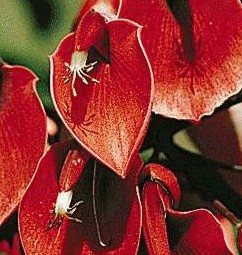Ceiboby Carmen RuggeroThey were peaceful. They were called the Guaraní. They were peaceful, the natives called Guaraní. Without warning, their savage blast fell Anahí leaped to her tribe’s defense — strong, Torches flaring, weapons drawn, crosses waving, She fought. She was strong; they were many. She endured in silence — no tears — no moans, |
[Author’s note] The Guaraní lived in the Paraná delta of Argentina. The Spanish attacks on them are a historical fact.
 Men were enslaved and forced into labor. Women were captured and raped, the result of which gave birth to the Argentine Mestizo — half native, half white. The belief was that the combination of Natives’ physical strength and the Whites’ taller stature would create a stronger working class. These children were later abandoned by the Spaniards.
Men were enslaved and forced into labor. Women were captured and raped, the result of which gave birth to the Argentine Mestizo — half native, half white. The belief was that the combination of Natives’ physical strength and the Whites’ taller stature would create a stronger working class. These children were later abandoned by the Spaniards.
The legend goes on to say that on the morning following Anahí’s agonizing death, a tree possessing her qualities grew on the very spot she died. Its name in Spanish is Ceibo or Seibo — the coral tree. It has hardy brown limbs, a soft interior, and red blossoms.
On the 24th day of November of 1942, the Ceibo was declared the national flower of Argentina.
Copyright © 2006 by Carmen Ruggero
